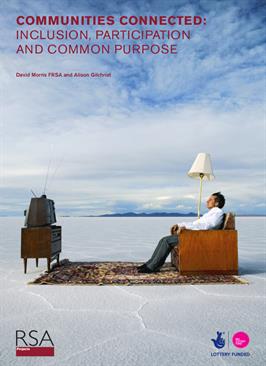This report concludes that by creating a more ‘transactional' or impersonal relationship between the users and providers of public services, government reforms will not build or sustain the social networks that are vital for both people's physical and mental health.
The pressures on public finances are well known and documented. Over the next few years, spending on the NHS will increase at the smallest rate for years while the money local authorities receive for adult social care will be reduced. At the same time, demand for these services is increasing. In the longer term, the Office of Budget Responsibility has shown the strains that will be placed on public finances by our ageing population.
This paper makes the argument for a new approach to delivering public services. Too often people who use public services are viewed as individuals with a set of problems that need to be solved. This perspective means that public services have often found it impossible to build and sustain the social networks of people who use these services.
Recommendations include the following:
- Commissioners of public services should protect, build on and utilise those things in the community that currently contribute positively to people's mental and physical health.
- Engaging the community with public services should be done
- When service users gain access to individual budgets they should be supported to develop a more self-aware form of autonomy.
-
Commissioners of public services should aim to build people's social networks as well as aim for more conventional medical outcomes.
pdf 3.5 MB
Contributors



Be the first to write a comment
Comments
Please login to post a comment or reply
Don't have an account? Click here to register.